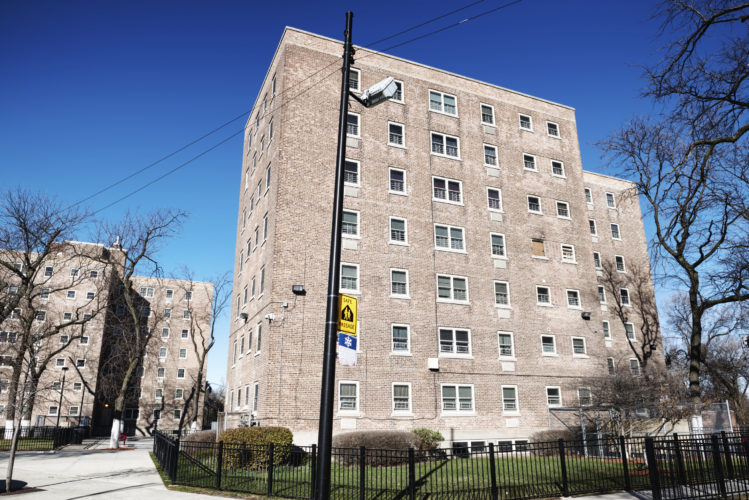
Many DC residents are jobless due to widespread efforts to contain the spread of the coronavirus (COVID-19), causing significant income loss that is threatening economic and housing stability for many. In response, the District enacted a moratorium on evictions, prohibiting landlords from evicting tenants for falling behind on rent. This is a great first step, but it’s also a temporary one. It does nothing to help residents catch up on past due rent or avoid eviction once the public emergency is over. The DC Council is poised to pass a second comprehensive COVID-19 relief package next Tuesday that importantly prohibits rent increases, but it too fails to include funding to help tenants pay overdue rent after the crisis. The DC Council and Mayor should fund this priority in the next relief measure.
What Expanded Rental Payment Relief Could Look Like
The District’s daily count of unemployment insurance claims jumped by over 2,400 percent in the last two weeks. Tens of thousands of people lost their incomes nearly overnight and are struggling to pay their April rents, and rental relief is urgently needed to mitigate a likely massive wave of evictions.
The District should significantly boost funding and expand eligibility for the Emergency Rental Assistance Program (ERAP)—which helps residents stay in their housing by paying for overdue rent—or, they should create a temporary parallel program that would achieve the same goal. District lawmakers have chronically underfunded ERAP, meaning many households in need have been turned away and the program is not well-positioned to handle a massive spike in applications. A boost in funding, even on a one-time basis, would provide immediate relief to tenants facing evictions after the crisis ends.
The DC Council should also expand eligibility for rent payment relief because the current requirements for ERAP are too stringent, meaning that many tenants who are badly in need of assistance, including those receiving unemployment benefits, will not qualify. The District must either significantly expand ERAP’s capacity to meet the skyrocketing need or create a parallel program whose eligibility requirements make the program more accessible to tenants who have lost income. Regardless of whether the District chooses to create a temporary, targeted program to meet immediate needs, lawmakers should increase funding for ERAP going forward and heed calls from advocates to improve the accessibility of that program.
Rental Supports Have Broad Immediate and Long-Term Benefits
Preventing evictions is critical because they cause tremendous economic instability and physical and emotional trauma. An eviction not only means that someone loses their home, it can lead to the loss of possessions and employment. Homelessness, depression, and disruptions to children’s schooling and healthy development are among other undesirable outcomes. Emergency rental assistance through ERAP, or another parallel program, not only prevents evictions in the short term, it also contributes to long-term housing stability by preventing a damaging eviction record, which future landlords could hold against the tenant. And, as new studies warn of a second wave of COVID-19, ensuring that people can stay in their homes is even more important for meeting long-term community public health goals.
While ERAP is primarily a measure to protect the health and safety of residents, ERAP payments go directly to landlords, some of whom may be relying on monthly rental income to maintain essential operations for their (units and?) buildings. Neglecting to expand funding and eligibility for ERAP—or a temporary parallel program—could have negative consequences for landlords too.
Rental Payments Would Likely Greatly Benefit Black and Brown Communities
Sufficiently funding ERAP is an issue of racial justice. In DC, most occupations held by Black workers are in the service sector, which has borne the brunt of the economic crisis, and tend to offer wages that are too low to get by and save for crises. Black DC residents are particularly vulnerable to eviction: nearly 90 percent of the 27,000 extremely low-income households spending at least half their income on rent in DC are households of color, primarily Black. Immigrants face similar hardships and are particularly vulnerable now as many of them are not eligible for public assistance generally or for the recent expansions to income and work supports at the federal and local level.
Recessions have particularly negative effects for Black and Latinx communities: they are typically the first to feel the effects of economic downturns and the last ones to recover from economic swings due to longstanding structural inequities. This means that rental payments could add an extra layer of economic protection to groups that are likely to be hardest hit by the economic downturn.
To help thousands of residents stay in their homes and avoid eviction, the Mayor and the Council should significantly expand the available funding for ERAP or a parallel program, enact more generous income guidelines, and relax the stringent documentation requirements that would pose a barrier to accessing supports.
Note: The DC Landlord-Tenant Court has issued a stay on all evictions through May 1. No evictions should be carried out during the state of emergency. If your landlord is carrying out an illegal “self-help” eviction, you can call the Legal Aid tenant hotline (202) 851-3388, or you can complete this form to ask for assistance from the District’s Chief Tenant Advocate.
